7 Great, Non-Thriller Albums Produced By Quincy Jones
Though his work with the King of Pop is career-defining, Jones's work with Dizzy Gillespie, Aretha Franklin, and George Benson helped transform R&B, jazz and gospel.
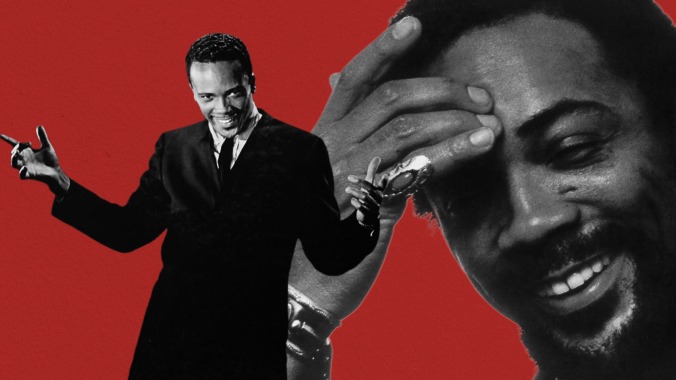
Over the weekend, the world bid adieu to Quincy Jones, the Chicago-born record producer, conductor, arranger and label exec who single-handedly changed the landscape of R&B, soul, funk, jazz and big band music during the 91 years we spent with him. Before Beyoncé passed him in 2023, Jones held the record for the most Grammy Award wins by an American musician. He was a legend amongst men, crafting one of the greatest three-album runs in history when he teamed up with Michael Jackson to make Off the Wall, Thriller and Bad back-to-back-to-back. Jones got his first break in the 1950s as a jazz arranger before producing hit songs, like “It’s My Party,” for Lesley Gore and worked with Frank Sinatra and Count Basie. Jones was an all-time film and TV composer as well, putting his name on soundtracks for The Italian Job, In the Heat of the Night, The Color Purple, The Wiz and Roots. He was responsible for one of my favorite TV show theme songs ever, the opening licks from Sanford and Son.
From 1971 through 1999, Jones had 10 albums of his own reach #1 on the jazz albums chart in the United States, including the Platinum-certified Sounds…and Stuff Like That!!, The Dude, Back on the Block and Q’s Jook Joint. From the release of Walking in Space in 1969 through The Dude in 1981, including all of the work he produced for other artists, I’d argue that very few musicians have ever had such a phenomenal decade of output. And to think that Jones’s biggest moment—producing “We Are the World,” the eighth-best-selling single of all time (20 million physical copies)—happened four years later in 1985, his legacy was sometimes unfathomable.
In recent years, a new generation of chronically online people have found its own fondness for Jones, especially his off-the-cuff interview with Vulture that, months before his passing, made the rounds on Twitter/X. His stories about Ray Charles introducing him to heroin at age 15 and Marlon Brando having sex with Marvin Gaye, Richard Pryor and James Baldwin, his opinion that the Beatles were some of the worst musicians alive, and his claims to know what really happened when John F. Kennedy was assassinated quickly gave him an animated, larger-than-life mythos. He was a storyteller who gave no fucks—a no-bullshit bullshitter and a legendary tea spiller. Beyond having his hands on some of the greatest music of the last 60 years, Jones was a man of the people and a hero to the divas.
In the wake of Jones’s passing, many are remembering him for his work on Thriller, an album considered to be among the greatest ever made—take Paste’s word for it, as we included it in our recent greatest albums of all time list. But, as I’ve been thinking about Quincy and thinking about his decades-spanning body of work, I’ve been revisiting some of his other records. So, below is a compilation of seven non-Thriller albums produced by Quincy Jones that I think some of you may enjoy, if you haven’t already.
Little Richard: The King of the Gospel Singers (1962)
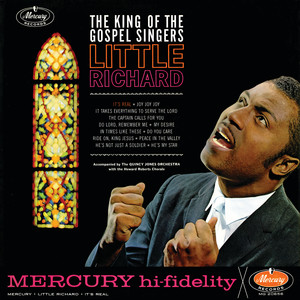 By the time Little Richard and Quincy Jones made The King of the Gospel Singers together in 1962, the “Architect of Rock and Roll” was no longer the zeitgeist dynamo of his 20s. Richard was 30 then, focusing on religion more than rock ‘n’ roll—a pivot that, perhaps unintentionally, led to a rock-oriented resurgence in his career, as the success of The King of the Gospel Singers helped land him on bills with an up-and-coming quartet named the Beatles. The Quincy Jones Orchestra nurtured the bounce of Richard’s singing just as well as Bumps Blackwell’s production had on Here’s Little Richard five years prior. Gone were the days of “Tutti Frutti” and “Long Tall Sally,” but what cannot be argued about Little Richard is that, even when he was elbows-deep in the world of gospel, his voice was never anything less than profound and soul-shaking. “Joy Joy Joy” lives up to its title, delivered in thunderous prayer from Richard. “(There Will Be) Peace in the Valley (For Me)” transforms from pew-bound hymnal to Top 40-worthy soul ballad. The King of the Gospel Singers was merely a blip of gospel in Little Richard’s long-term relationship with rock ‘n’ roll and R&B, but, under the guidance of Jones, it stands out 62 years later.
By the time Little Richard and Quincy Jones made The King of the Gospel Singers together in 1962, the “Architect of Rock and Roll” was no longer the zeitgeist dynamo of his 20s. Richard was 30 then, focusing on religion more than rock ‘n’ roll—a pivot that, perhaps unintentionally, led to a rock-oriented resurgence in his career, as the success of The King of the Gospel Singers helped land him on bills with an up-and-coming quartet named the Beatles. The Quincy Jones Orchestra nurtured the bounce of Richard’s singing just as well as Bumps Blackwell’s production had on Here’s Little Richard five years prior. Gone were the days of “Tutti Frutti” and “Long Tall Sally,” but what cannot be argued about Little Richard is that, even when he was elbows-deep in the world of gospel, his voice was never anything less than profound and soul-shaking. “Joy Joy Joy” lives up to its title, delivered in thunderous prayer from Richard. “(There Will Be) Peace in the Valley (For Me)” transforms from pew-bound hymnal to Top 40-worthy soul ballad. The King of the Gospel Singers was merely a blip of gospel in Little Richard’s long-term relationship with rock ‘n’ roll and R&B, but, under the guidance of Jones, it stands out 62 years later.
Dizzy Gillespie: New Wave! (1963)
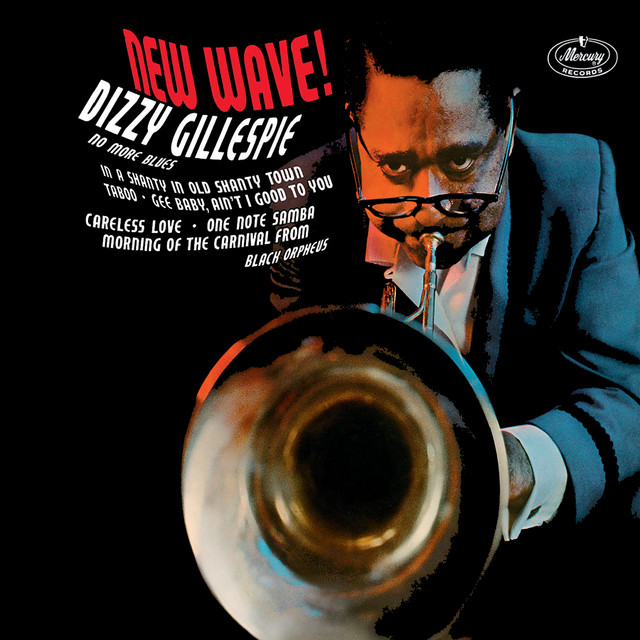 New Wave! isn’t the most popular Dizzy Gillespie record (that honor belongs to Afro or Bird and Diz), but it’s a really slick collision of live and studio material. It’s easily some of Dizzy’s strongest work of the 1960s, and a composition like “One Note Samba” remains a favorite of mine. With a quintet ensemble of Leo Wright, Lalo Schifrin, Bola Sete, Chris White and Rudy Collins behind him, Dizzy really sprawls out and fastens into a confident, playful mode. The then-45-year-old trumpeter sounds brash and vibrant during “Careless Love” and “In a Shanty in Old Shanty Town”—a jazz maestro at an apex.
New Wave! isn’t the most popular Dizzy Gillespie record (that honor belongs to Afro or Bird and Diz), but it’s a really slick collision of live and studio material. It’s easily some of Dizzy’s strongest work of the 1960s, and a composition like “One Note Samba” remains a favorite of mine. With a quintet ensemble of Leo Wright, Lalo Schifrin, Bola Sete, Chris White and Rudy Collins behind him, Dizzy really sprawls out and fastens into a confident, playful mode. The then-45-year-old trumpeter sounds brash and vibrant during “Careless Love” and “In a Shanty in Old Shanty Town”—a jazz maestro at an apex.
Aretha Franklin: Hey Now Hey (The Other Side of the Sky) (1973)
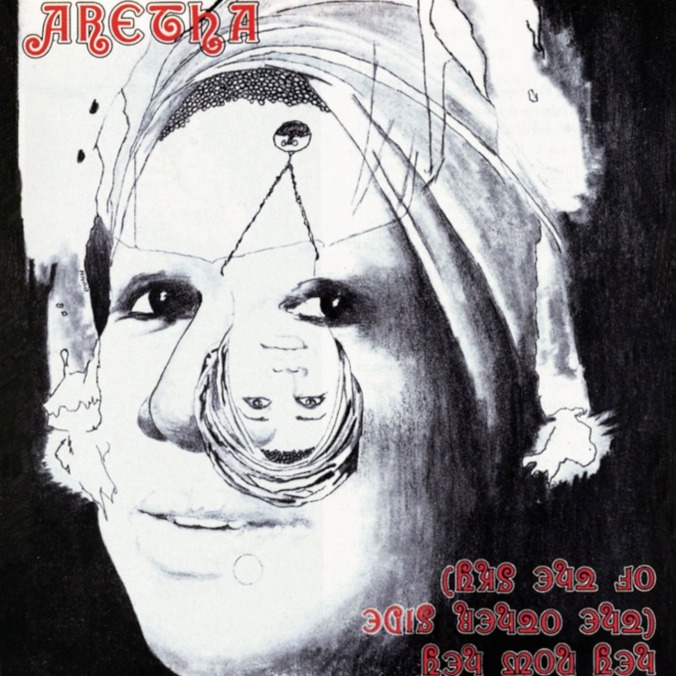 Aretha’s 19th studio album pales in comparison to her 18th, but that’s because Amazing Grace is one of the best gospel records ever made. It’s best to place Hey Now Hey (The Other Side of the Sky) on a pedestal of its own, not one that neighbors such a legacy. The Queen of Soul never made a dud, but I do sometimes wonder why Hey Now Hey remains so underrated in her ubiquitous catalog. “Angel” is one of her best songs from the decade, as is “That’s the Way I Feel About Cha.” Aretha even has a few original compositions in the mix, including the title track, “Sister from Texas” and “Just Right Tonight,” which she co-wrote with Avery Parrish, Buddy Feyne, Robert Bruce and Jones. Hey Now Hey features Spooner Oldham on the keys, and Billy Preston even drops a piano solo during “Just Right Tonight.” Many, in retrospect, mark Hey Now Hey as Aretha’s last hurrah before making the move to a more disco-oriented sound; I’d say her take on Leonard Bernstein and Stephen Sondheim’s “Somewhere” is among the finest things she ever did in the 1970s.
Aretha’s 19th studio album pales in comparison to her 18th, but that’s because Amazing Grace is one of the best gospel records ever made. It’s best to place Hey Now Hey (The Other Side of the Sky) on a pedestal of its own, not one that neighbors such a legacy. The Queen of Soul never made a dud, but I do sometimes wonder why Hey Now Hey remains so underrated in her ubiquitous catalog. “Angel” is one of her best songs from the decade, as is “That’s the Way I Feel About Cha.” Aretha even has a few original compositions in the mix, including the title track, “Sister from Texas” and “Just Right Tonight,” which she co-wrote with Avery Parrish, Buddy Feyne, Robert Bruce and Jones. Hey Now Hey features Spooner Oldham on the keys, and Billy Preston even drops a piano solo during “Just Right Tonight.” Many, in retrospect, mark Hey Now Hey as Aretha’s last hurrah before making the move to a more disco-oriented sound; I’d say her take on Leonard Bernstein and Stephen Sondheim’s “Somewhere” is among the finest things she ever did in the 1970s.
The Brothers Johnson: Right on Time (1977)
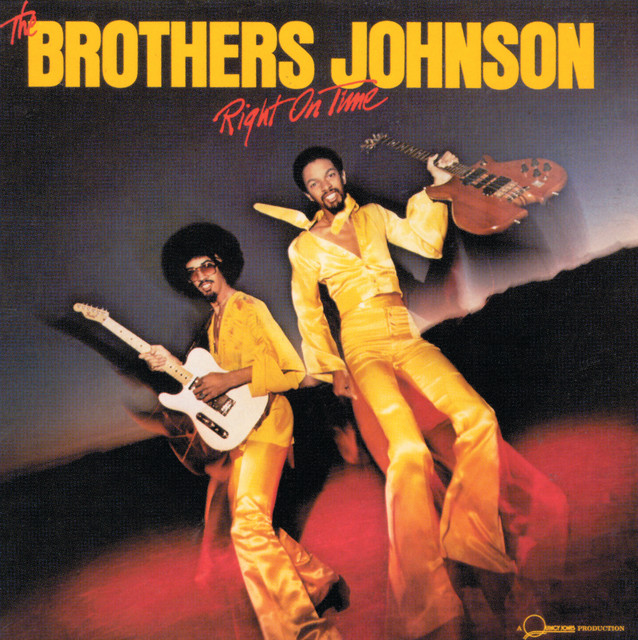 Jones produced the first four Brothers Johnson albums, from Look Out for #1 through Light Up the Night, but I gravitate most toward Right on Time, the group’s 1977 hit for Herb Alpert and Jerry Moss’s A&M Records. The LP went to #13, #2 and #4 on the pop, soul and jazz charts, and it remains one of my favorite funk projects ever. I can’t champion George and Louis’s work enough; “Strawberry Letter 23,” which was penned by Shuggie Otis (son of the great Johnny Otis), is funk history delivered with seamless grandeur. But don’t let a Top 5 hit distract you from the rest of Right on Time’s greatness, which is galvanized by “Runnin’ For Your Lovin’” and “Free Yourself, Be Yourself.” Louis Johnson was one of American music’s greatest bassists for a reason, and, on account of his four-string sequences, “Never Leave You Lonely” sounds like it came from another planet entirely. Considering that, a year after Right on Time’s release, Jones would hit the studio with Michael Jackson to make Off the Wall, it’s hard to argue with back-to-back credits like that. When Jones was in the room, the Brothers Johnson were among the greatest living performers.
Jones produced the first four Brothers Johnson albums, from Look Out for #1 through Light Up the Night, but I gravitate most toward Right on Time, the group’s 1977 hit for Herb Alpert and Jerry Moss’s A&M Records. The LP went to #13, #2 and #4 on the pop, soul and jazz charts, and it remains one of my favorite funk projects ever. I can’t champion George and Louis’s work enough; “Strawberry Letter 23,” which was penned by Shuggie Otis (son of the great Johnny Otis), is funk history delivered with seamless grandeur. But don’t let a Top 5 hit distract you from the rest of Right on Time’s greatness, which is galvanized by “Runnin’ For Your Lovin’” and “Free Yourself, Be Yourself.” Louis Johnson was one of American music’s greatest bassists for a reason, and, on account of his four-string sequences, “Never Leave You Lonely” sounds like it came from another planet entirely. Considering that, a year after Right on Time’s release, Jones would hit the studio with Michael Jackson to make Off the Wall, it’s hard to argue with back-to-back credits like that. When Jones was in the room, the Brothers Johnson were among the greatest living performers.
Michael Jackson: Off the Wall (1979)
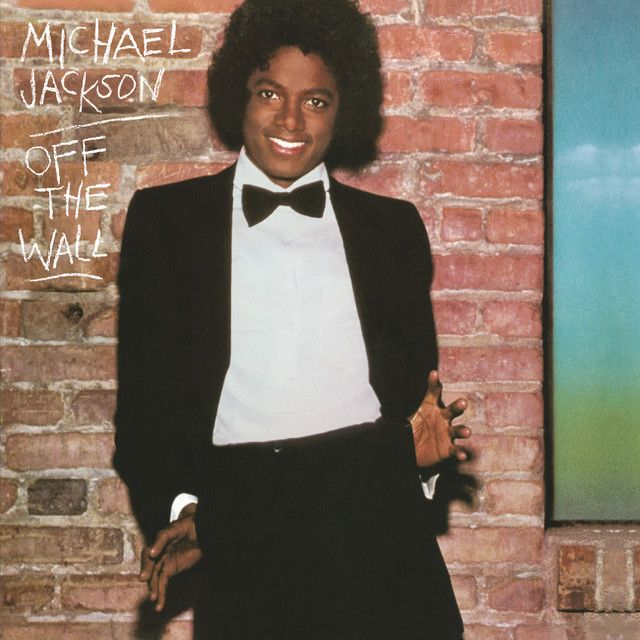 Thriller this, Thriller that—I will always stand on my business about Michael Jackson’s discography: Off the Wall is his best album. It was his solo breakout, dropped after a string of decent records he made while still a full-time member of the Jackson 5/the Jacksons. Off the Wall doesn’t have the surface-level star-power of its successor, which began with the oft-reviled “The Girl is Mine” before traipsing through hits like “Billie Jean,” “Beat It,” “P.Y.T.” and “Thriller.” Instead, Off the Wall is disco-funk cranked to an 11 and delivered by one of the greatest pop performers of my lifetime and yours. The album cooks from the starting gun, ushering us in via the one-two-punch of “Don’t Stop ‘Til You Get Enough” and “Rock With You.” Jackson and Jones worked with songwriters like Rod Temperton, Paul McCartney, Tom Bahler and Stevie Wonder to make these 10 songs pop, and few projects have arrived as big and star-making as this one. “Off the Wall” remains one of the greatest title tracks ever, a resounding example of disco at its barn-burning, earthquaking peak. Without Off the Wall, we don’t have The Weeknd. We don’t have Pharrell. We don’t have Beyoncé. And no figure in music history could coax a masterpiece out of Michael Jackson quite like Quincy Jones.
Thriller this, Thriller that—I will always stand on my business about Michael Jackson’s discography: Off the Wall is his best album. It was his solo breakout, dropped after a string of decent records he made while still a full-time member of the Jackson 5/the Jacksons. Off the Wall doesn’t have the surface-level star-power of its successor, which began with the oft-reviled “The Girl is Mine” before traipsing through hits like “Billie Jean,” “Beat It,” “P.Y.T.” and “Thriller.” Instead, Off the Wall is disco-funk cranked to an 11 and delivered by one of the greatest pop performers of my lifetime and yours. The album cooks from the starting gun, ushering us in via the one-two-punch of “Don’t Stop ‘Til You Get Enough” and “Rock With You.” Jackson and Jones worked with songwriters like Rod Temperton, Paul McCartney, Tom Bahler and Stevie Wonder to make these 10 songs pop, and few projects have arrived as big and star-making as this one. “Off the Wall” remains one of the greatest title tracks ever, a resounding example of disco at its barn-burning, earthquaking peak. Without Off the Wall, we don’t have The Weeknd. We don’t have Pharrell. We don’t have Beyoncé. And no figure in music history could coax a masterpiece out of Michael Jackson quite like Quincy Jones.
Rufus ft. Chaka Khan: Masterjam (1979)
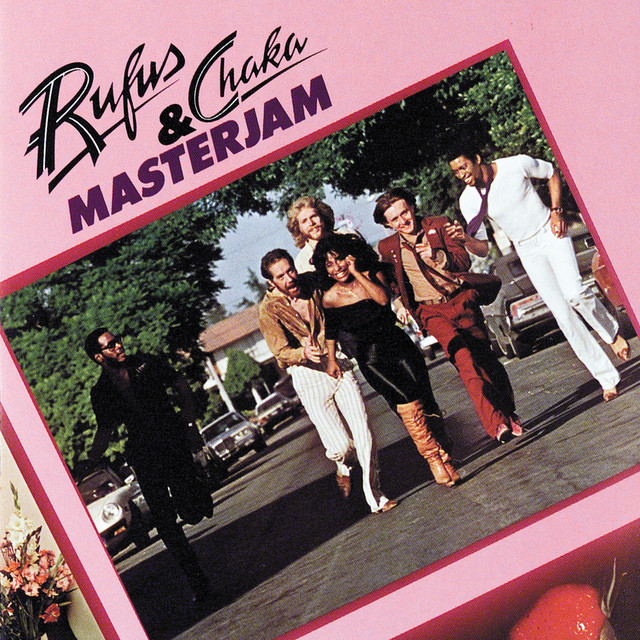 Few connections have ever rewarded popular music as much as Rufus and Chaka Khan from 1973 through 1979. Rufus released eight albums in that period and only one of them—Numbers—did not feature Chaka. While Rags to Rufus and Ask Rufus are the heavy-hitters in the Chicago soul band’s catalog, I have a huge soft spot for Masterjam, the record that, by my account, officially closed the book on Rufus and Chaka Khan’s Heaven-made match. Chaka would return on Camouflage in 1981, but Masterjam is the true conclusion—or, at the very least, the one I consider to be the band’s bonafide finale. Masterjam begins with my favorite Rufus song, “Do You Love What You Feel,” and concludes with the club-busting, Rod Temperton-penned title track. Elsewhere, “Live in Me,” “Body Heat” and “What Am I Missing?” encompass a gorgeous and underrated side two. You can hear the way disco and funk collide on these songs, only to often rupture and simmer into that soul excellence that Rufus and Chaka Khan so inventively turned into dance-pop brilliance—a truth certified in gold by the RIAA.
Few connections have ever rewarded popular music as much as Rufus and Chaka Khan from 1973 through 1979. Rufus released eight albums in that period and only one of them—Numbers—did not feature Chaka. While Rags to Rufus and Ask Rufus are the heavy-hitters in the Chicago soul band’s catalog, I have a huge soft spot for Masterjam, the record that, by my account, officially closed the book on Rufus and Chaka Khan’s Heaven-made match. Chaka would return on Camouflage in 1981, but Masterjam is the true conclusion—or, at the very least, the one I consider to be the band’s bonafide finale. Masterjam begins with my favorite Rufus song, “Do You Love What You Feel,” and concludes with the club-busting, Rod Temperton-penned title track. Elsewhere, “Live in Me,” “Body Heat” and “What Am I Missing?” encompass a gorgeous and underrated side two. You can hear the way disco and funk collide on these songs, only to often rupture and simmer into that soul excellence that Rufus and Chaka Khan so inventively turned into dance-pop brilliance—a truth certified in gold by the RIAA.
George Benson: Give Me the Night (1980)
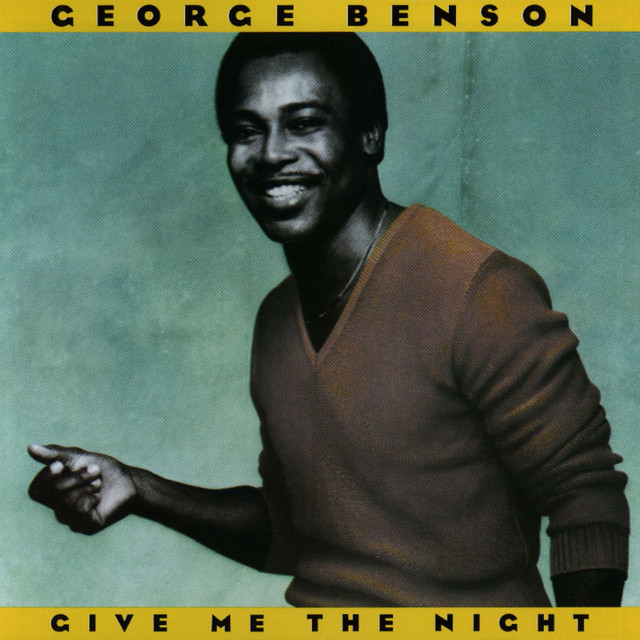 Major, major props to George Benson for being one of the greatest jazz fusion guitarists to ever walk the earth. By the time he linked up with Jones in 1980, Benson had already scored a #1 album—the 3x Platinum-certified Breezin’—and was one of American music’s surest concert draws. When the two minds converged, they came up with Give Me the Night, a Platinum-selling soul classic that earned Benson three Grammy wins in 1981—including Best Male R&B Vocal Performance for “Moody’s Mood,” one of the best non-single success stories in Recording Academy history. For the album, Jones put a terrific ensemble around Benson, including Herbie Hancock, Clare Fischer and Richard Tee on keys, Lee Ritenour (who also played on the Brothers Johnson’s Right on Time) on guitar and Louis Johnson and Abe Laboriel on bass. There’s a smoothness to Give Me the Night—it goes down easy but simmers within you. Jones’s arranging brilliance and Benson’s velvet vocal range clicked right into place while in each other’s company. Songs like the title track, which was the record’s lead single and hit #1 on the Soul Singles chart, and “Love X Love” certainly proved as much.
Major, major props to George Benson for being one of the greatest jazz fusion guitarists to ever walk the earth. By the time he linked up with Jones in 1980, Benson had already scored a #1 album—the 3x Platinum-certified Breezin’—and was one of American music’s surest concert draws. When the two minds converged, they came up with Give Me the Night, a Platinum-selling soul classic that earned Benson three Grammy wins in 1981—including Best Male R&B Vocal Performance for “Moody’s Mood,” one of the best non-single success stories in Recording Academy history. For the album, Jones put a terrific ensemble around Benson, including Herbie Hancock, Clare Fischer and Richard Tee on keys, Lee Ritenour (who also played on the Brothers Johnson’s Right on Time) on guitar and Louis Johnson and Abe Laboriel on bass. There’s a smoothness to Give Me the Night—it goes down easy but simmers within you. Jones’s arranging brilliance and Benson’s velvet vocal range clicked right into place while in each other’s company. Songs like the title track, which was the record’s lead single and hit #1 on the Soul Singles chart, and “Love X Love” certainly proved as much.
Matt Mitchell is Paste’s music editor, reporting from their home in Northeast Ohio.



































